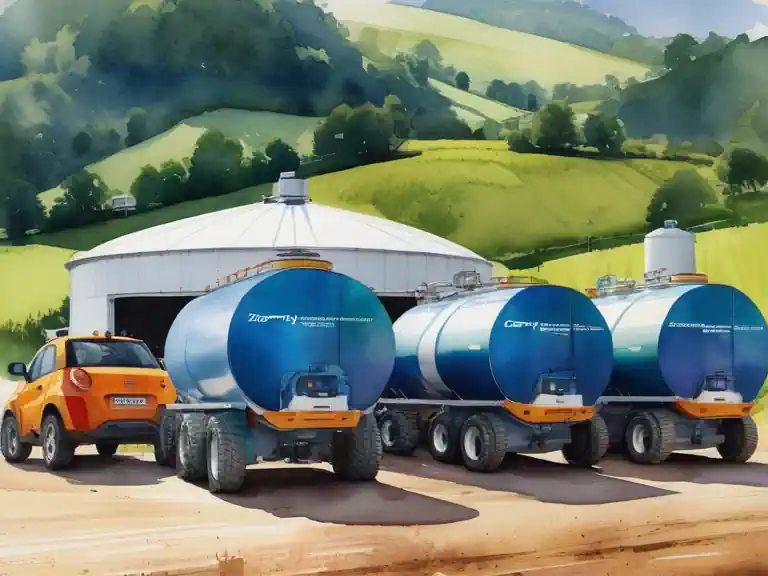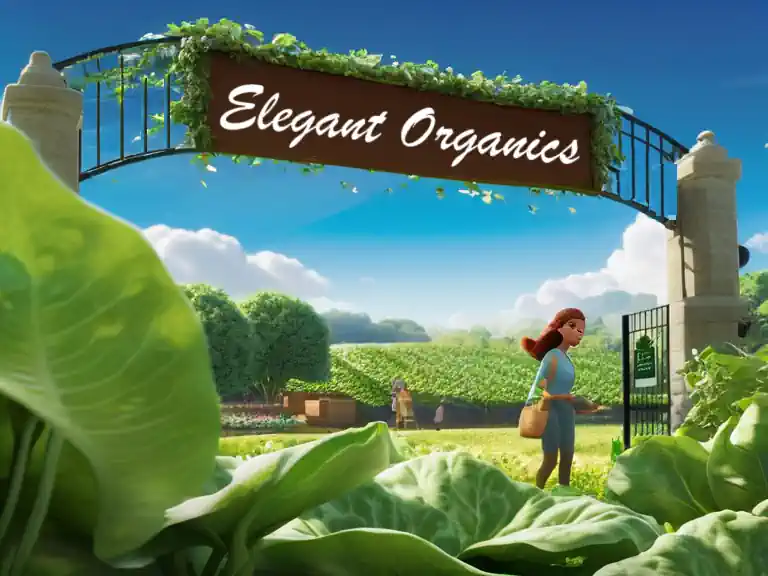Welcome to the first post on the Elegant Organics Depackaging Machine Directory, a resource-rich website dedicated to the essential world of organic waste depackaging and separation equipment. Today, we’re thrilled to introduce you to this innovative directory, a comprehensive guide that addresses the critical process of depackaging and separates organic waste from non-organic contaminants. Our goal? To provide a Depackaging Machine Directory to facilitate professional choice of a cleaner, more efficient journey for organic waste from collection to biogas digesters, transforming waste into renewable energy while prioritizing the recovery and recycling of non-organic materials.
With this first post, we begin our journey to become your go-to directory for organic waste processing, emphasizing technologies designed to handle complex waste streams. The Elegant Organics Depackaging Machine Directory is here to provide insights, resources, and tools for managing, processing, and recovering organic waste materials in ways that support sustainable energy production and minimize environmental impact.
The Role of Depackaging in Organic Waste Processing
Depackaging plays an indispensable role in the organic waste management lifecycle. Organic waste from various sources—grocery stores, commercial kitchens, households, and agriculture—often comes mixed with non-organic contaminants, including plastic wrappers, aluminium foil, and other packaging materials.
Effective depackaging is essential to transform this waste into renewable energy via biogas digesters. Depackaging machines separate valuable organic materials from contaminants, allowing clean, uncontaminated organic waste to proceed to anaerobic digesters. Here, these organics are broken down by bacteria in oxygen-free environments, releasing methane and carbon dioxide as byproducts.
Biogas, composed primarily of methane, is a renewable energy source with multiple applications: it can be converted into electricity, used as vehicle fuel, or processed further into renewable natural gas (RNG). As of 2023, the biogas market has been expected to grow by over 8% annually, with organic waste processing recognized as a central contributor to renewable energy generation. Effective selection and use of the machines in our Depackaging Machine Directory helps this process by ensuring the organic input feed to these digesters is contaminant-free, resulting in higher-quality biogas and less residual waste.

Why Elegant Organics? A Directory for Specialized Equipment
Elegant Organics aims to fill a critical knowledge gap by serving as a one-stop directory for anyone in the organic waste processing industry seeking specialized depackaging and separation equipment. Our directory will feature industry-leading machinery that can handle diverse organic waste streams, from large-scale industrial food waste to municipal solid waste containing a mix of organic and inorganic components. Each piece of equipment highlighted here will be evaluated based on criteria critical to successful organic waste processing:
- Efficiency: High throughput rates are vital for facilities processing significant amounts of waste daily.
- Precision Separation: Advanced technologies are required to ensure organic waste is thoroughly separated from contaminants without losing valuable organic matter.
- Sustainability Focus: Equipment that allows for the recycling or recovery of non-organic contaminants, such as plastic bags or food wrappers, aligns with circular economy goals.
- Adaptability: With the diversity of waste types, equipment that can be adapted to different inputs ensures a broader range of applications across industries.
Elegant Organics’ focus is not just to highlight depackaging machinery but also to assess and share information on equipment tailored for sustainable, zero-waste organic waste processing. Our listings will include machines capable of handling pre-consumer and post-consumer organic waste, suited for use in biogas production, composting, and other waste management systems.
Bridging the Gap: Recovering the “Unwanted” Contaminants
One of the key challenges in organic waste processing is managing the non-organic contaminants that accompany organic waste, such as plastics, metals, and other packaging materials. For example, an average biogas facility may receive organic material contaminated by around 5-15% of non-organic waste, much of which can hinder the anaerobic digestion process and negatively impact biogas yield if not properly separated.
Recycling and Repurposing Non-Organics: At Elegant Organics, we emphasize that waste-to-energy processes should not stop at producing biogas. The non-organic materials extracted from depackaging can often be repurposed or recycled. Modern depackaging equipment incorporates advanced sorting mechanisms that enable the separation of valuable recyclable materials, which can then be reintroduced into manufacturing supply chains. For example, plastic film extracted from organic waste can be repurposed into plastic pellets, and metals can be reprocessed into new industrial materials.
As part of our directory’s scope, we will review equipment that achieves this dual objective: efficiently sorting organic material for biogas production and capturing non-organic elements for recycling. This integrated approach aligns with the circular economy model, minimizing waste at every stage and reducing the environmental impact of organic waste processing.
Biogas Production and Renewable Energy: Pioneering a Green Future
Biogas is one of the most promising renewable energy sources. Unlike solar or wind, biogas provides a steady energy supply since organic waste is generated continuously from various sectors. The organic waste destined for biogas digesters can generate power for households, industries, and even transportation, reducing reliance on fossil fuels. According to recent estimates, organic waste processing through anaerobic digestion could help reduce methane emissions, a greenhouse gas over 25 times more potent than CO₂, by up to 40% in certain sectors.
Elegant Organics is here to support this green transition. By spotlighting depackaging equipment designed for biogas applications, we aim to accelerate the adoption of renewable energy technologies in waste management. In the upcoming months, our directory will feature detailed profiles of depackaging systems, including drum separators, screw press extruders, and high-speed shredders that facilitate efficient biogas production.
Keeping Sustainability in Focus: As the global push for sustainability grows, so does the need for industry-standard equipment to process waste responsibly. Elegant Organics places a priority on promoting equipment and methodologies that contribute to reduced greenhouse gas emissions and environmental impact. Our platform will feature expert insights, technical reviews, and environmental data to help organizations make informed, eco-friendly choices in their waste management strategies.
What to Expect from Elegant Organics in the Coming Months
Elegant Organics is just beginning, and our mission is to become the premier directory and resource for anyone involved in organic waste processing, renewable energy, and waste recycling. Here’s what you can look forward to:
- Comprehensive Equipment Profiles: Expect in-depth articles on cutting-edge depackaging and separation equipment for organic waste processing. Each entry will include technical specifications, operational insights, sustainability data, and a focus on adaptability across various types of organic waste.
- Expert Insights and Industry Trends: Our blog will host interviews with industry experts, updates on regulatory changes impacting organic waste processing, and case studies on successful waste-to-energy projects.
- Innovation and Sustainability Spotlights: We’ll highlight emerging technologies and novel methods that optimize both organic and inorganic waste handling, such as AI-assisted sorting and biodegradable packaging options that minimize contamination.
- Resources for Industry Standards and Compliance: As regulations evolve, Elegant Organics will serve as a knowledge hub for understanding compliance standards and best practices in waste-to-energy processing. Our resources will help industry players remain compliant while adopting environmentally sound practices.
This blog post marks the start of the Directory for Depackaging Machine Selection, aa collaborative journey towards more sustainable food waste waste management practices. By focusing on organic waste/ especially food waste depackaging and separation, Elegant Organics aims to bridge the knowledge gap between food waste management and renewable energy production, all while addressing the critical need for recycling non-organic materials.

